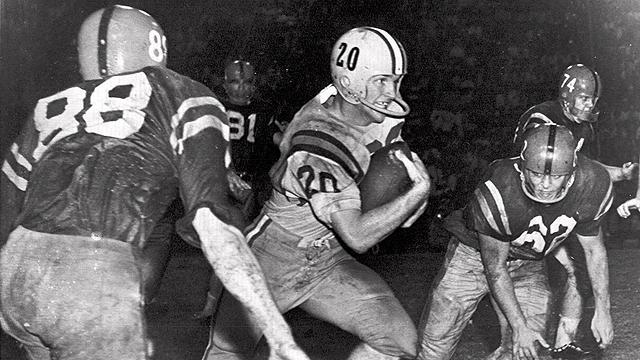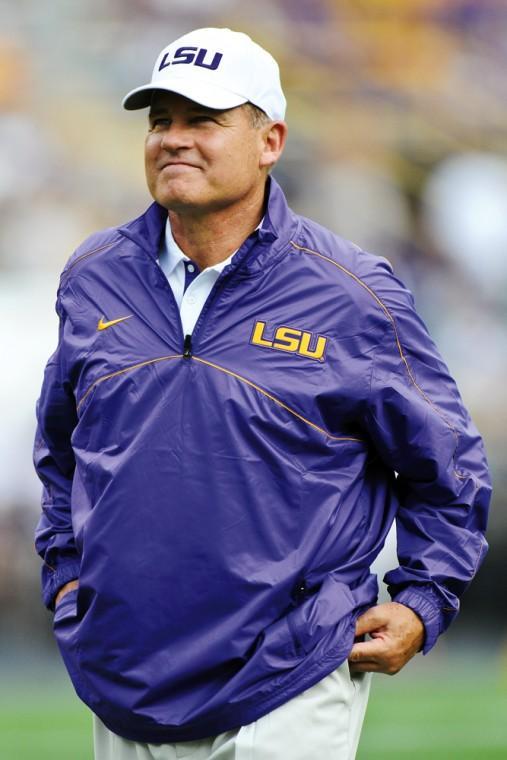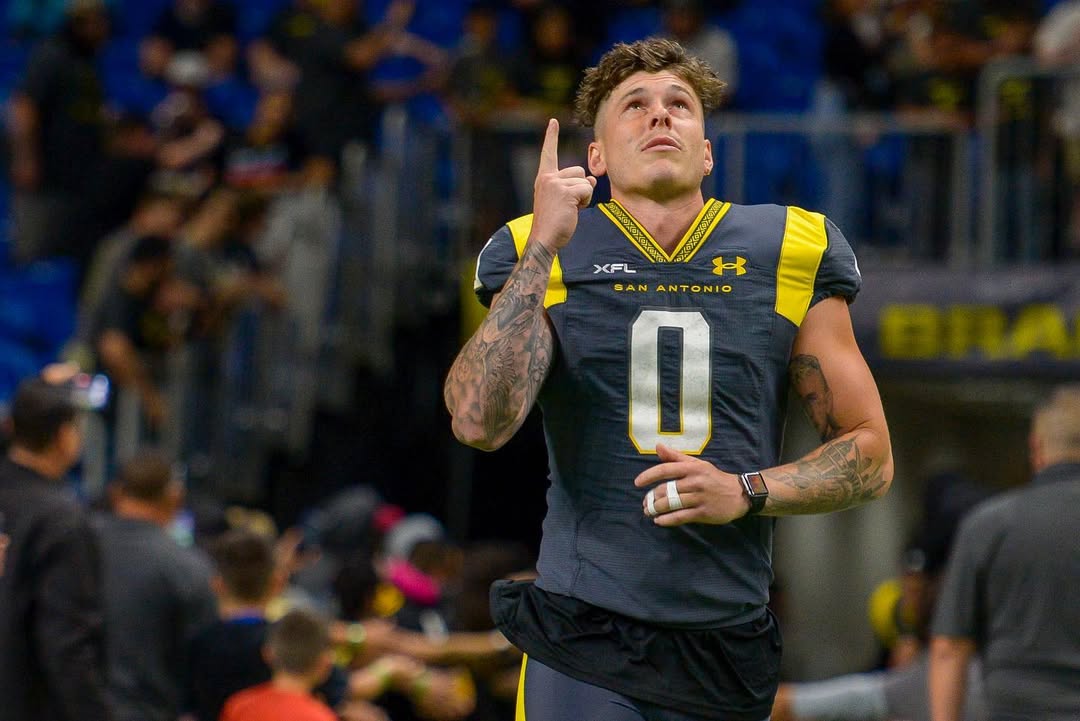Heisman Trophy winners usually know talent when they see it.
Billy Cannon is the only LSU player to claim the trophy, and he said watching the current incarnation of the Tigers this past year has taken on a familiar feeling.
“The guys these days, it’s a talent level that’s like what we were working with [when I played],” Cannon said. “The players I watched last year and against Washington [last Saturday] — the speed is the separator. It’s why they can play like these machines against the best. They’re faster than I’ve ever seen.”
Cannon’s praise is consistent with the polls.
LSU, which is in the AP top five for the 18th week in a row dating back to last August, hasn’t been this entrenched among the NCAA’s elite since Cannon roamed the Tiger Stadium turf.
From 1958-59, the Tigers spent 17 straight weeks in that rarified air and recorded the most successful two-year run in LSU history.
Those teams were notorious for bludgeoning opponents with a familiar combination to modern LSU fans: a powerful running game and a dominant defense.
The 1959 defense still holds school records for fewest points allowed (29) and fewest yards allowed per game (143.2) and allowed a record 33.1 percent completion percentage.
The 1958 squad wasn’t far off those numbers, but it also had the championship hardware.
“I don’t really know much about those teams other than they could hit you and win a lot,” said LSU junior safety Eric Reid. “It’s a comparison I would welcome.”
But Tiger players might not want to endure those teams’ exact path, or at least the exact order of Cannon and Co.’s legendary seasons.
The championship came first, then 1959 brought the heartbreak.
While Cannon won the Heisman and the defense was statistically LSU’s best ever, the Tigers dropped a single regular-season game on a missed two-point conversion at Tennessee, ending a 13-week reign atop the polls.
“I still can’t get over that game, sometimes,” Cannon said. “I hope nothing boils down to a play like that for this year’s team.”
A Sugar Bowl berth still awaited, against a conference rival whom they had already beaten without scoring an offensive touchdown in a game for the ages two months earlier.
But No. 2 Ole Miss walloped a punchless LSU squad, 21-0, in New Orleans.
Sound familiar?
LSU has its Ole Miss now, Cannon said. But this time the rival is located in Tuscaloosa.
“It’s the exact same thing as [LSU-Ole Miss] was, just different uniforms,” Cannon said of LSU’s current clashes with Alabama. “The passion, intensity and competitiveness is on the same level, because Ole Miss was so good then. Rivalries are built on competition, and Alabama is LSU’s now.”
The despair of the Jan. 9 rematch might as well be as far in the past as Ole Miss and Cannon’s glory days, LSU players say.
The challenge, senior offensive lineman Josh Dworaczyk said, comes from reversing the script of LSU’s late-’50s fate.
“Getting to the big game last year, it’s a similar thing to that time because we know what we’re doing and experienced a high level,” he said. “But they had their win already. The goals never change, but the urgency in finishing this time — that’s where it has to be different.”
What the players lacked in specific knowledge of those teams, they made up for in reverence and ambition.
Sophomore left guard La’el Collins looked up at the banners in LSU’s indoor practice facility and said he notices the long gaps between the 1960s and the 2000s, something he thinks this era could banish for good.
“Obviously, we missed out on the big prize [in 2011], but the season was big time,” Collins said. “We want to start our own run at that kind of level. Be better the next time out, be the best. [The 1958-59 teams] were.”
The individual success also matches up across the eras. Five players were drafted from both the 1959 and 2011 teams. Two of LSU’s five Heisman finalists, Cannon and Tyrann Mathieu, played in the respective seasons.
Cannon also said Les Miles and his coach at the time, Paul Dietzel, share more than just winning football philosophies.
“They both speak funny. They’re from the North,” he said, laughing.
Cannon said Miles is similarly effective to Dietzel at using talent in the running game, but with one difference.
“They don’t need anyone to win a Heisman anymore,” he said. “As long as Les is here, it seems like there’s a stable of backs, so no need to have one guy carry it a lot. Nobody’s going to pile up the stats you need for the awards, but you’ll still win.”
But just because the carries are spread around, Cannon said top-five rankings and winning streaks still exact an air of pressure unlike any other.
“You get these long winning streaks and pressure develops upon you,” he said. “And you don’t realize it’s there until it’s gone. The bad news is, losing that pressure means you lost a game.”






